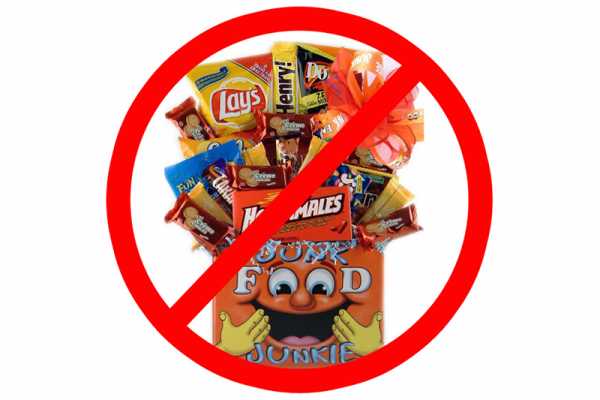
When we are infants, we are born knowing to eat when we are hungry, and stop to when they are comfortable. But as we grow, we are exposed to a world of fad diets, food marketing & advertising ploys, food used as a reward & artificial foods that cause us to have incredible cravings.
1. Eat Slower & Chew Food Well: The University of Florida at Gainesville has shown it takes 12 or more minutes for food satisfaction signals to reach the brain of a thin person, but 20 or more minutes for an obese person. Eating slowly ensures that these important messages have time to reach the brain, and will help you stop eating sooner.
2. Choose Whole Foods: Stay away from foods that give you tons of calories, but very little volume. The higher the fiber, protein, and/or water content of a food or meal, the more likely it is to be satisfying without going overboard on calories. Also avoid processed foods and artificial sweeteners, these items cause cravings and make it hard to stop eating them even when you notice you’re full.
3. Pay Attention: Don’t eat when you are driving or at the computer, because when we are distracted or hurried the food (and calories) we consume may not to register in the brain. Give meals your full attention, and notice when you’ve had enough. Also using smaller plates and paying attention to the presentation of meals can help you stop eating when you are comfortable. “The brain looks at the plate and decides if the portion is adequate,” says Gold. “It takes some time, but the smaller the plate, the smaller the portion.”
–

–
4. Make Your First Bites Count: Maximum food enjoyment comes from the initial bites. After a few bites, taste buds start to lose their sensitivity to the chemicals in food that make it taste good. If you satisfy your taste buds by really savoring those first few bites, you can help stop yourself from eating more, when you’re physically comfortable.
5. Have Healthy Snacks Ready: Having healthy foods ready to snack on throughout your day when hunger strikes, can keep you from overeating during your meals.
6. Plan Ahead: Planning ahead will go a long way in curbing your appetite and getting in the habit of eating well. When you plan ahead, you’ll likely feel like a bit of stress or pressure is lifted from your shoulders. Finding a good balance is difficult, so changing your lifestyle in simple ways like meal plans can make a big difference.
7. Drink lots of Water: Drinking lots of water, especially before a meal, will help you feel full faster. Often, people think they’re hungry when they’re actually thirsty. Drinking a huge glass of water when you start to feel that mid-afternoon or mid-evening craving will suppress your appetite and keep you feeling satisfied.
8. Keep up appearances. Using a smaller plate and paying attention to the presentation of a meal can increase your awareness of the food in front of you and help you stop eating when you are comfortable.
–

–
9. Choose satisfying foods. Steer away from foods that give you a lot of calories for very little volume, such as milk shakes, cheese, and chocolate. The higher the fiber, protein, and/or water content of a food or meal, the more likely it is to be satisfying in your stomach.
10. Eat Frequently: Doctors and health experts all agree: eating frequently is the single most effective way to prevent overeating. Eating small, healthy meals (or snacks) throughout the day will ensure your body never gets to the point of being really hungry.
11. Eat Lots of Fiber: Foods high in fiber will make you feel full faster. They’ll also keep you feeling full longer. For these reasons, fiber-packed snacks are the perfect solution for overeating.
12. Don’t Go Grocery Shopping When You’re Hungry: This is a classic mistake made by so many of us each week. You make your way to the grocery store and before you know it, you’re starving.
13. Don’t Buy Junk Food: If you have junk food in your house, you’ll eat it. However, if you feel a junk food craving coming on but don’t have any salty or sugary snacks in the house, chances are you’re not going to make a special run to the grocery store.
–

–
14. Eat Lots of Protein: Similar to fiber, getting enough protein in your diet will make you feel full for longer and satisfied faster than many other foods.
15. Never Skip Breakfast: There are several health benefits to eating breakfast but preventing your body from overeating later in the morning is one of the top ones.
16. Use The Hunger Scale: You need to learn the way to recognize the physical cues that show a true need for nourishment. Before eating, use the hunger scale to figure out your actual food needs:
17. Deal With Your Anxiety: Overeating can happen as you feel stressed and you would like something to ground you. Thus, the best way to avoid overeating is to stop feeling anxious.
18. Just Eat When You Are Hungry: In case you are eating foods as a habit and not because you are hungry, you could be overeating and offering your body more than that it actually needs.
–

–
19. Stop Eating When You Are Full: When you feel sated, that is the way for your body telling your brain that you have consumed enough food.
20. Spend 20-30 Minutes Eating Your Meal: In case you eat too fast, you will tend to overeat if compared to when you eat a meal more slowly. It takes 20 minutes for the body to send signals to the brain that it is full.
21. See a therapist: Sometimes, you overeat due to emotional eating. It can be an eating disorder, so you should seek a medical help.
22. Remove Serving Bowls When Eating: Removing serving bowls when eating can help you avoid overeating effectively.
23. Measuring cup: In order to ensure that you are consuming the exact portion size, it may be effective in measuring your food before eating it.